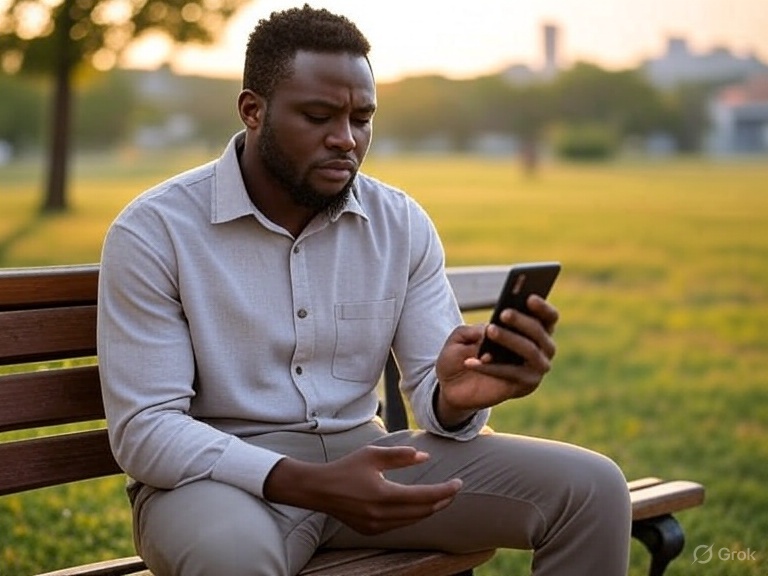In Nigeria, few phrases are as common as “Abeg, borrow me your phone.” Whether it’s a friend who has run out of airtime, a stranger trying to make a quick call, or a relative whose battery has died, the request often feels harmless. Nigerians are known for their generosity, and refusing such a request can sometimes be perceived as rude or unfriendly.
But behind this culture of sharing lies an overlooked danger: giving someone temporary access to your phone is not just an act of kindness — it could be a serious cybersecurity risk.
Why Phones Are More Than Just Phones
Unlike in the early 2000s, today’s smartphones are not just for calls and text messages. They are powerful computers that store:
- Banking apps and mobile money accounts (GTBank, Opay, PalmPay, Kuda, etc.)
- Passwords and authentication codes (including OTPs)
- Work emails, personal chats, and sensitive documents
- Social media accounts tied to business and personal reputation
- Photo and video libraries that may contain private or sensitive content
In essence, borrowing someone’s phone is like borrowing their house keys, wallet, and ID card all at once.
How “Borrow Me Your Phone” Becomes a Threat
1. Quick Data Theft
It takes less than a minute for someone to:
- Copy your contacts to another phone.
- Take screenshots of private chats or financial information.
- Save your personal photos and videos to a cloud drive.
2. Social Media Hijacking
A borrowed phone can give access to open apps like WhatsApp, Instagram, or Facebook. With just a few taps, a stranger could:
- Send scam messages to your contacts.
- Change your account password.
- Post damaging content that tarnishes your reputation.
3. Banking and Mobile Money Exploits
Many Nigerians leave their banking apps logged in. A “borrower” can:
- Transfer small amounts quickly (hoping you won’t notice).
- Copy your account numbers and details for later scams.
- Set up USSD shortcuts or SIM swaps to siphon money.
4. SIM Swap & OTP Manipulation
If someone inserts your SIM into another phone — even briefly — they could intercept your one-time passwords (OTPs). That’s all a fraudster needs to reset your email, bank, or social media accounts.
5. Malware Installation
Some “borrowers” may not be interested in your phone for immediate use. Instead, they might install hidden spyware or malware that silently:
- Tracks your keystrokes.
- Records your calls and messages.
- Sends your data to remote servers.
The Nigerian Context: Why It’s Easy to Fall for It
- Hospitality culture: Nigerians don’t like to appear stingy. Refusing a request, especially from a relative, can be seen as “wicked.”
- Shared resources: In rural areas, sharing is survival. Just like people share generators or water, sharing phones feels natural.
- Low cybersecurity awareness: Many people still believe cybersecurity threats only happen “abroad” or to “big men.”
This combination creates the perfect environment for cybercriminals to exploit trust.
How to Protect Yourself Without Offending Others
Here are practical ways to balance kindness with caution:
- Lock Sensitive Apps
Use app-locking features or third-party apps to protect banking, email, and messaging apps with a PIN or fingerprint. - Enable Screen Pinning (Android) or Guided Access (iPhone)
This feature allows someone to use only the app you open for them (like Phone or Contacts) without accessing the rest of your device. - Politely Decline with Alternatives
Instead of saying “no,” you can:
- Offer to dial the number yourself and put the phone on speaker.
- Suggest they use a public phone booth, recharge card vendor, or cybercafé.
- Keep Backups and Monitor Activity
Regularly back up your phone and check for strange logins or app installations. - Educate Friends and Family
Make cybersecurity awareness a topic in family gatherings. If people know the risks, they’ll understand why you hesitate to hand over your phone.
“Borrow me your phone” may sound harmless, but in today’s digital age, it can be the gateway to identity theft, fraud, or reputation damage.
Cybersecurity isn’t only about firewalls and antivirus software — it starts with everyday decisions, even as simple as whether to hand over your phone. In Nigeria, where trust and communal living are strong, we must balance kindness with digital caution.
Next time someone says “Abeg, borrow me your phone,” remember: you’re not just handing them a gadget — you’re giving temporary access to your entire digital empire.
